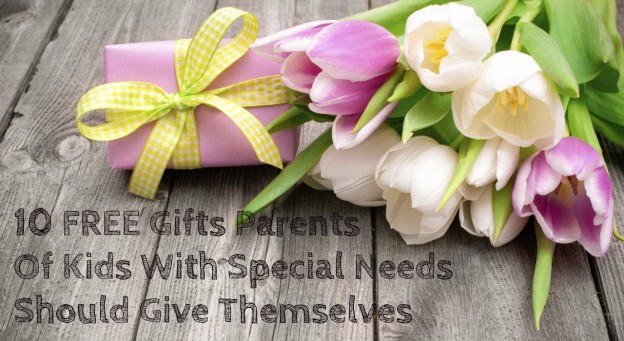
Parenting 5. Exercise
Regular exercise reduces stress, improves cardiovascular health and boosts cognitive function. There are many ways to incorporate exercise into a caregiving lifestyle:
7. Creativity
A creative outlet such as sewing, painting, journaling, scrapbooking or making music reduces stress and offers a sense of accomplishment. Last year the Friendship Circle hosted an evening of painting for mothers of children with special needs, which was successful in terms of both friendship and creativity. The opportunity for creative expression can help us to see things from a fresh perspective.
10 FREE Gifts Parents Of Kids With Special Needs Should Give Themselves
Caregiving is a round-the-clock job with few breaks. Caregivers have a tendency to put most of their energy into another person’s well-being, while their own needs take second place...or third or fourth. But there are many gifts that caregivers can give to themselves to help sustain that energy. Fortunately, the most meaningful gifts usually don’t cost a dime. Here are 10 gifts that every caregiver could use:1. Health assessment
Studies have documented that caregivers suffer from poor health and stress-related conditions. Before scheduling a check-up with your physician, complete a free online health assessment like this one at Walgreens.com to identify areas of concern.2. Nutrition
I know parents who are vigilant about their children’s nutritional intake but negligent with their own. Consider keeping a food diary like this one at Nutridiary.com to keep track of nutritional choices.3. Reading for insight
When I take my kids to the public library, I often check out a book of poetry for myself - Shakespeare, Petrarch, traditional Japanese haiku, ee cummings, Goethe, Hesiod, whatever looks interesting. Poetry has the advantages of a short time commitment and multiple levels of meaning, so that each reading gives a different impression. I find that the words stay with me and give me insight during trying moments. Barbara Crooker is one modern poet who also happens to be a parent of an adult with a disability, and her parenting experiences surface in her writing.4. Friendship
Social isolation is the single biggest risk of caregiving, and friendship is one of the “cures.” Friendship with other adults can be difficult to navigate at times, but sharing good times can increase an overall sense of well-being.5. Exercise
Regular exercise reduces stress, improves cardiovascular health and boosts cognitive function. There are many ways to incorporate exercise into a caregiving lifestyle:
- Call your city's Parks and Rec department to find out where the wheelchair accessible walking trails are, and plan out a daily walk with your loved one.
- I used to take walks with my son in a backpack carrier until he was over 40 pounds.
- Get a bike trailer and go for a ride.
- Put in an exercise video at home or do a 10 minute stretch in the living room.
- Dance.




